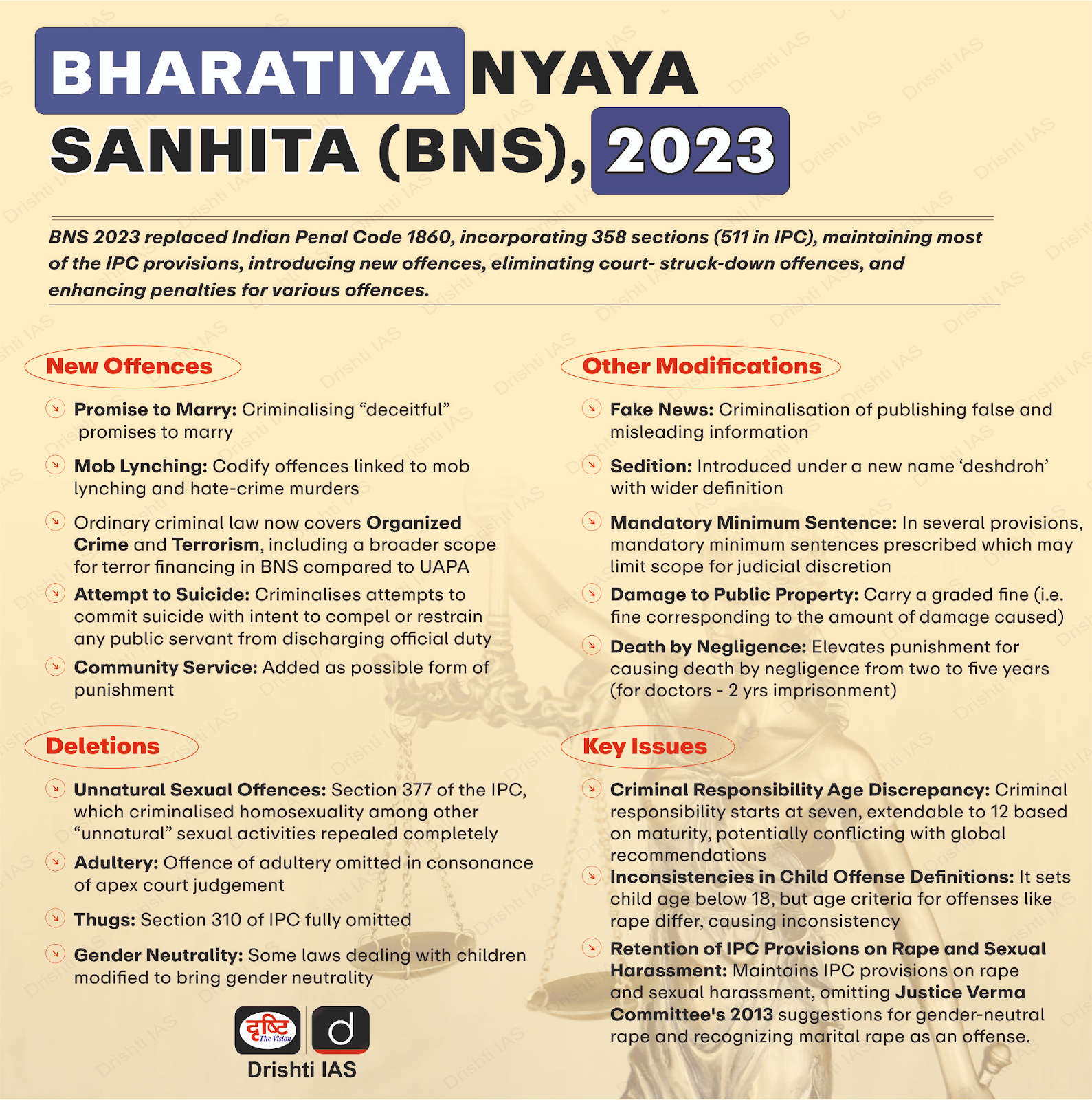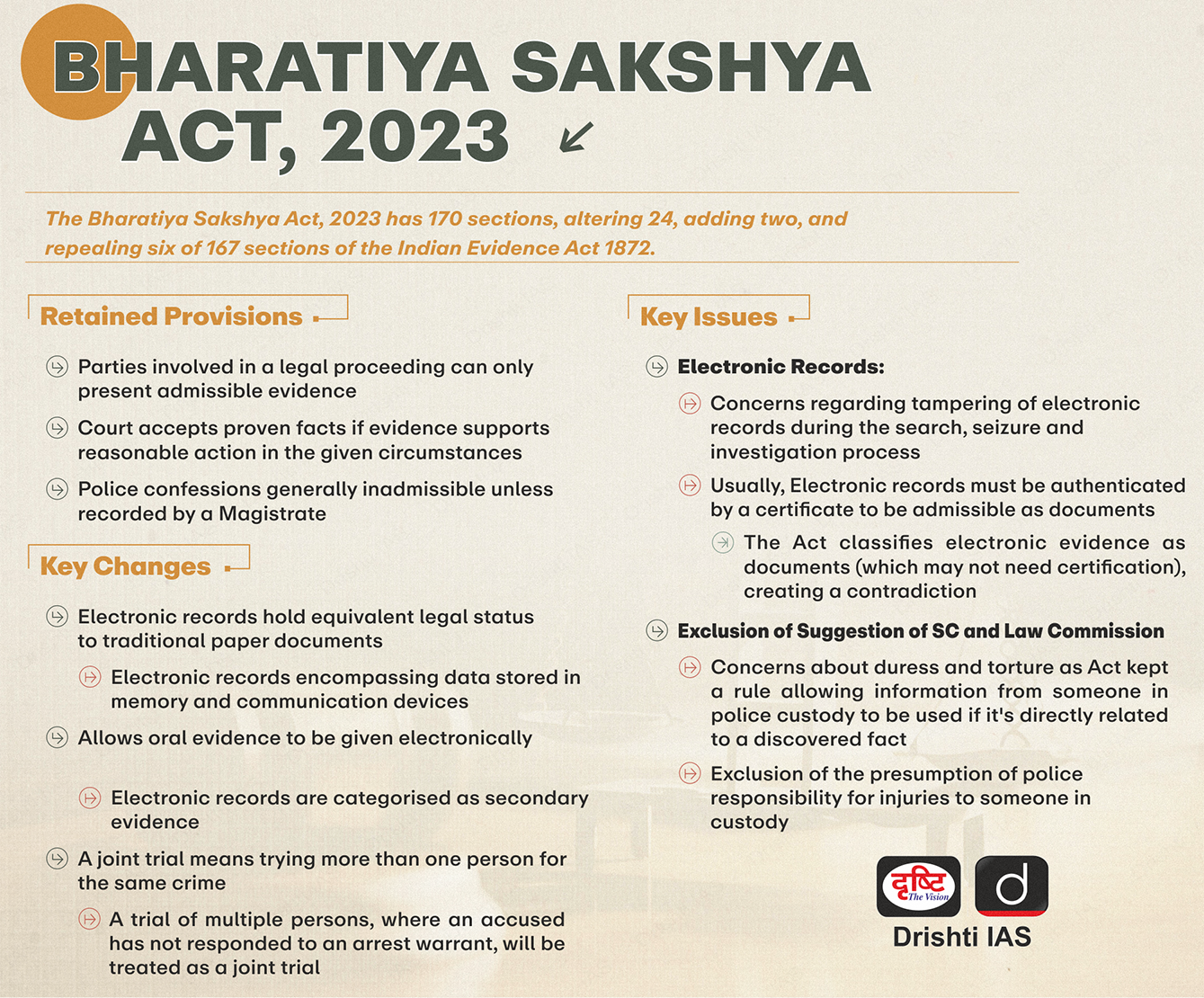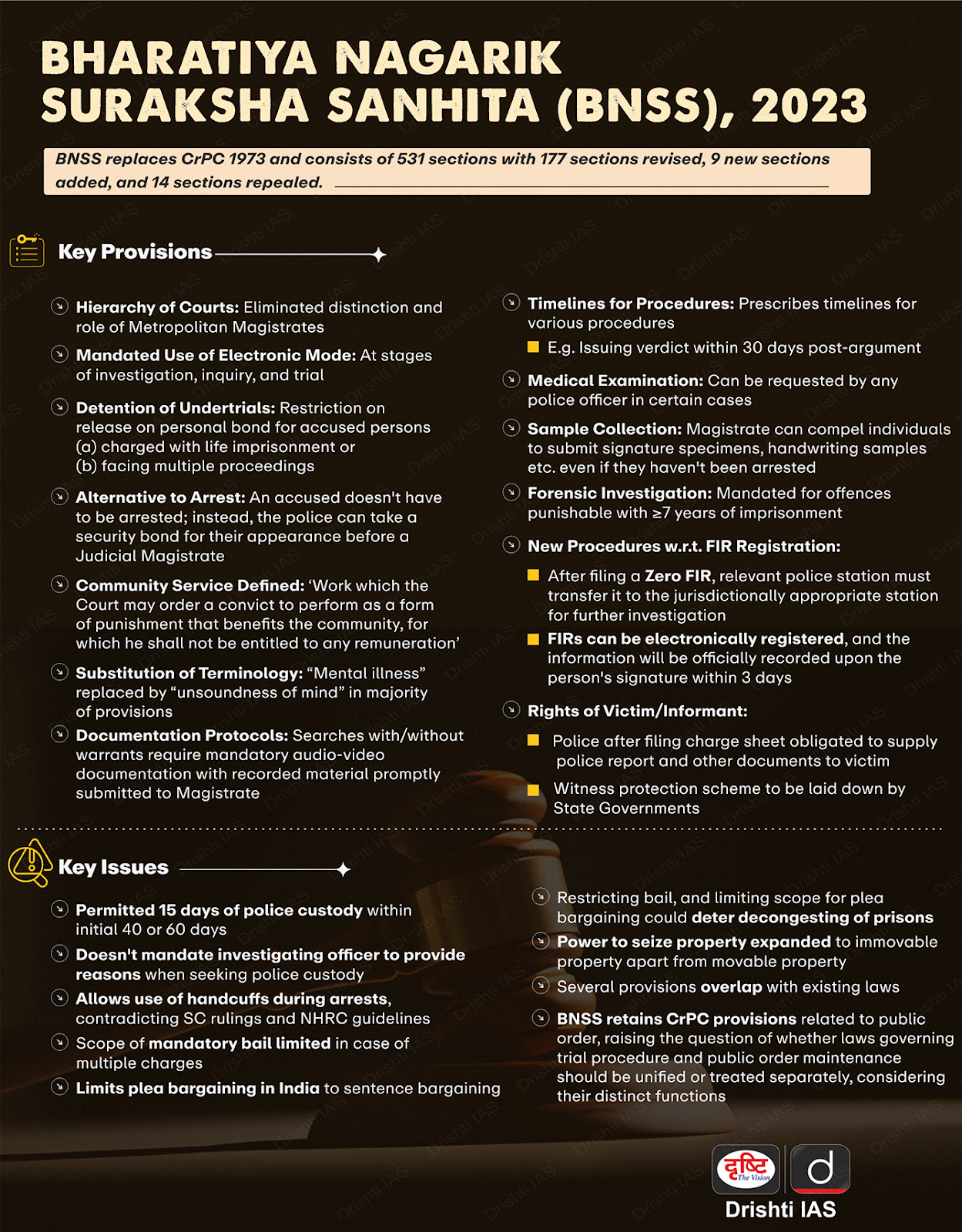New Criminal Laws Come into Force | 01 Jul 2024
Why in News?
Recently enacted three new criminal laws Bharatiya Nyaya Sanhita (BNS), Bharatiya Nagarik Suraksha Sanhita (BNSS), and Bharatiya Sakshya Adhiniyam (BSA) are set to take effect from 1st July 2024, replacing the colonial-era Indian Penal Code (IPC), Code of Criminal Procedure (CrPC) and Indian Evidence Act.
What are the Key Highlights of the New Criminal Laws?
- Objective: The new laws aim to replace colonial-era punishments with a justice-focused approach, integrating technological advancements in police investigations and court procedures.
- New Offences: New offences include terrorism, mob lynching, organized crime, and enhanced punishments for crimes against women and children.
- Steps for Smooth Transition:
- States are free to bring in their own amendments to some provisions of the Bharatiya Nagrik Suraksha Sanhita (BNSS).
- The Bharatiya Nyaya Sanhita (BNS) may also be amended soon to incorporate a section on sexual crimes against men and transgender persons.
- For the time being police officers are being asked to invoke other allied sections under the BNS, such as wrongful confinement and physical hurt, if they get such complaints until an amendment is brought to correct this anomaly.
- The IPC and CrPC will run concurrently along with the new laws as several cases are still pending in courts and some crimes that took place before 1st July 2024 that are reported later will have to be registered under the IPC.
- First information reports (FIRs) can now be filed online through the Crime and Criminal Tracking Network Systems (CCTNS), allowing e-FIRs and zero FIRs in multiple languages without needing to visit a police station.
- Training and hand-holding have been done for all States to help them adapt to the new system.
- While the Home Ministry is testing eSakshya, a mobile app for police to record and upload crime scene evidence, various states have developed their own systems based on their capabilities.
- For example, the Delhi Police have developed an e-pramaan application.
- Key Points in New Laws:
- Introduces community service as punishment for petty offences.
- A terrorist act defined as one intending or likely to threaten India's unity, integrity, sovereignty, security, or economic security, or acts intended or likely to strike terror among the people.
- Mob lynching now punishable by death or life imprisonment if committed by five or more on grounds such as race, caste, community, sex, place of birth, language, personal belief.
- There will be trial in absentia of fugitive criminals.
- Summary trials now cover cases where the punishment is up to 3 years, aiming to resolve more than 40% of cases in sessions courts.m
- Videography compulsory during search and seizure. No charge sheet valid without such recording.
- A first-time offender who has served a third of the jail term will be released on bail by the court.
- Forensic experts should be used in every case where the punishment includes seven or more years in jail.
- Bharatiya Nyaya Sanhita, 2023:
- Bharatiya Sakshya Act, 2023:
- Bharatiya Nagarik Suraksha Sanhita, 2023:
Related Initiatives Taken by Government
UPSC Civil Services Examination, Previous Year Question (PYQ)
Mains
Q. Mob violence is emerging as a serious law and order problem in India. By giving suitable examples, analyze the causes and consequences of such violence. (2015)
Q. We are witnessing increasing instances of sexual violence against women in the country. Despite existing legal provisions against it, the number of such incidences is on the rise. Suggest some innovative measures to tackle this menace. (2014)



